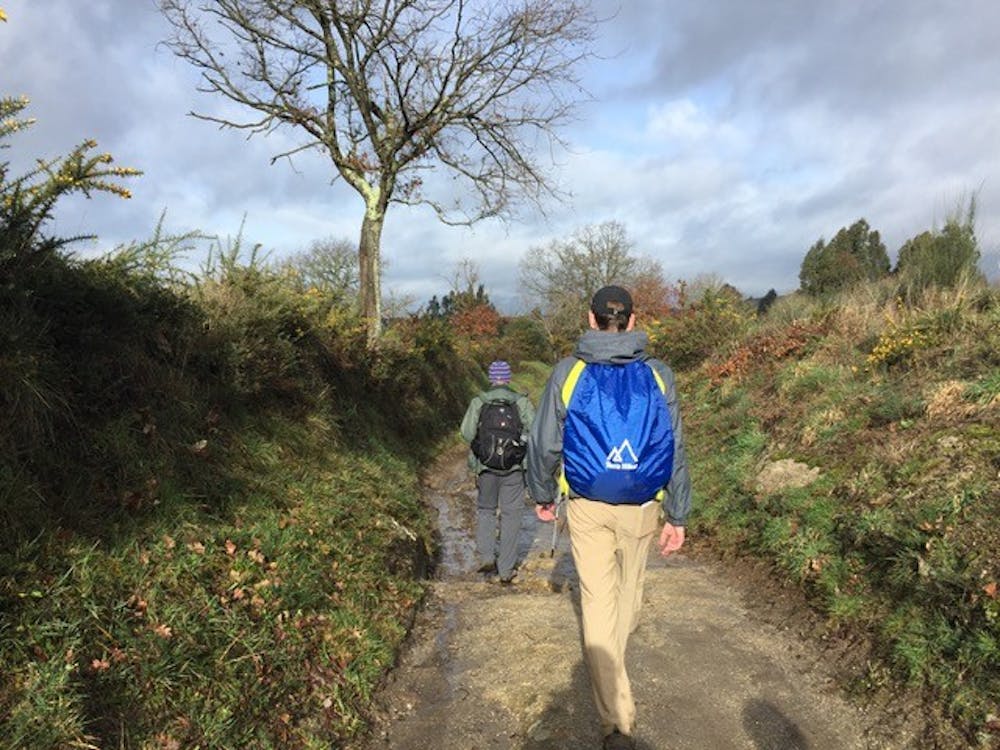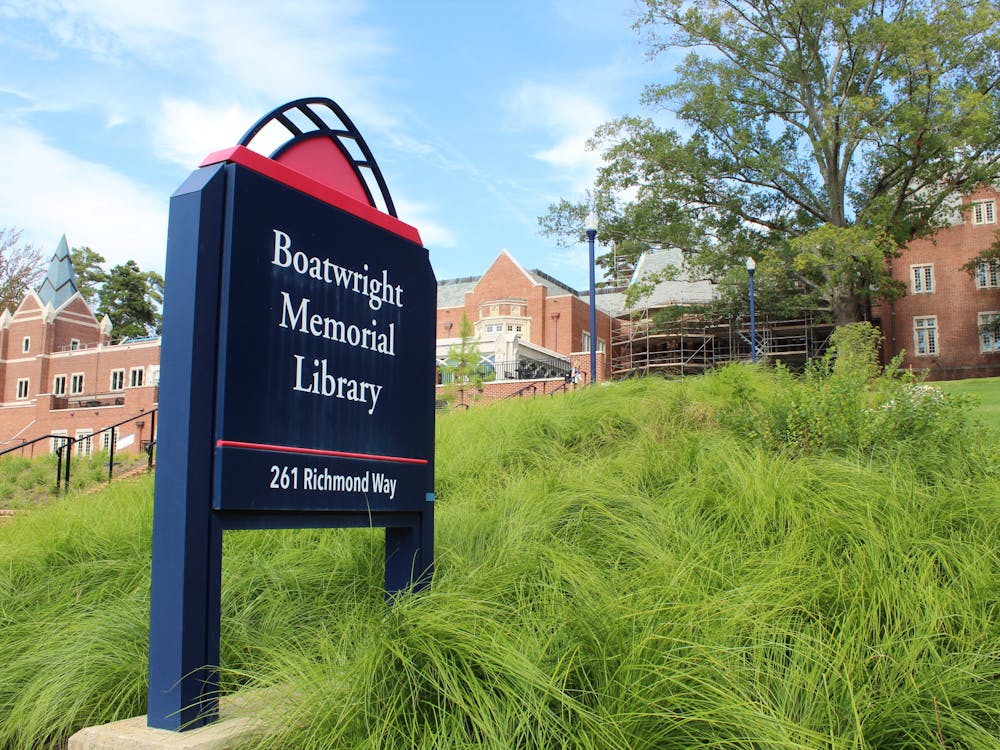While walking through rustling leaves and surrounded by the sweet smell of eucalyptus, eight University of Richmond students ventured on a weeklong, multi-sensory expedition.
Trading the beach for the eucalyptus forest, the group spent their Spring Break hiking 70 miles of El Camino de Santiago, a famous pilgrimage route in Spain.
The students embarked on the trip as members of the Pilgrimage: El Camino, a UR chaplaincy sponsored program, not knowing what they would discover along the way.
The Rev. Craig Kocher, the university chaplain who helped lead the group of students, said the pilgrimage served as a metaphor for life, teaching people about both themselves and others.
A pilgrimage also integrates spirituality and physicality, making participants aware of their spiritual and physical wellness and the connections between them, Kocher said.
Although the physical challenges of walking an average of 15 miles per day in cold, rainy weather were daunting, Kocher said facing those obstacles as a team had made the experience even more rewarding.
Jack DeAngelis, junior, agreed that the taxing conditions helped the students grow closer with each other.
“When you hit mile 17, you’re really at your core,” DeAngelis said. "Your superficialities kind of fall away. It’s neat to see people for who they are.”
Another junior who went on the trip, Cory Schutter, said the pilgrimage had helped him realize the importance of community and connecting with others, especially in terms of spirituality.
“You start depending on other people, whether it’s for Band-Aid and blister things or for companionship and encouraging you as you walk,” Schutter said.
In addition to growing as a group, the students grew individually, too. Each night the group would have a student-led team reflection time based on a theme and a reading, Kocher said.
“I was deeply moved by the depth of those conversations,” Kocher said. “I think the students did not only a really fine job in leading those, but in sharing very thoughtfully and eloquently.”
Enjoy what you're reading?
Signup for our newsletter
DeAngelis said he had enjoyed getting to step back from the stress of everyday life and spend time in reflection.
“I think it helped to center me in a couple ways and realign a couple of my focuses,” DeAngelis said.
Schutter said the purpose of completing the pilgrimage could differ depending on the person and whether the trip was centered on the destination or the journey.
“In one aspect, you’re traveling there to meet history at that spot,” Schutter said. “But for other people, the journey might be more important for various reasons.”
The team’s 70-mile journey led to Santiago de Compostela Cathedral in A Coruña, Spain, where Saint James’ bones are buried, and culminated in a lunch with fellow pilgrims from around the world.
Schutter said the pilgrim lunch was one of his favorite memories from the trip because the team had been seated among mostly Spanish-speakers, yet they found a way to communicate and share the experience together.
To prepare them for the historical context of the trip, the students were required to attend a half-credit course, which met once a week and was designed to put the pilgrimage in perspective by teaching the history of the Spanish region and spiritual practices associated with pilgrimages, DeAngelis said.
The class was also an opportunity for the team members to bond and share their stories, Kocher added.
Appreciating the merit of both El Camino and each other’s pasts made reaching the final destination that much more rewarding, Kocher said.
“You have a sense of the history,” he said. “You’re now a part of a tradition that goes back a thousand years, and to have done that together with a group of people who really care about one another…I think was a very rewarding part of the trip.”
The chaplaincy offers two or three pilgrimage programs to different parts of the world each year, combining academic, spiritual, international and social interests, Kocher said. Students can start applying to the program in the fall.
Both DeAngelis and Schutter said they would recommend taking the trip in a heartbeat.
Contact lifestyle contributor Erika Echternach at erika.echternach@richmond.edu.
Support independent student media
You can make a tax-deductible donation by clicking the button below, which takes you to our secure PayPal account. The page is set up to receive contributions in whatever amount you designate. We look forward to using the money we raise to further our mission of providing honest and accurate information to students, faculty, staff, alumni and others in the general public.
Donate Now



